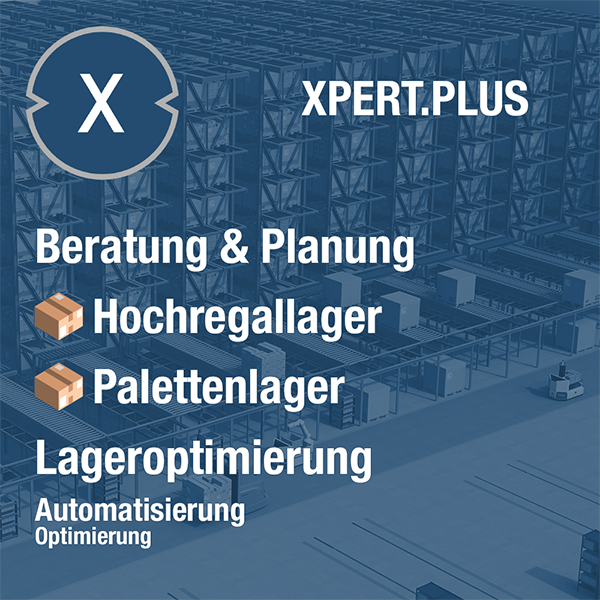Smart Contracts & Logistics in global logistics and supply chain with business blockchain technology solution
Language selection 📢
Published on: July 26, 2023 / update from: July 26, 2023 - Author: Konrad Wolfenstein
Smart Logistics: Automated processes through smart contracts Transparency and efficiency
Smart Green Logistics: How smart contracts contribute to environmentally friendly logistics
Smart contracts have the potential to revolutionize the global logistics industry and significantly improve efficiency, transparency and security in supply chains and logistics processes. Here are some important and interesting details on how smart contracts can impact global logistics:
1. Definition of Smart Contracts
Smart contracts are self-executing, programmable contracts based on blockchain technology. They enable automated processes by converting contract terms and clauses into code that is automatically executed when specified conditions are met.
2. Automation and increased efficiency
In logistics, smart contracts could automate manual processes, e.g. B. the payment flow between suppliers, freight forwarders and customers. When certain delivery conditions are met (e.g. successful delivery, goods receipt confirmed), payment is triggered automatically, resulting in accelerated processing and reduction of delays.
3. Transparency and traceability
The use of smart contracts in logistics enables a more transparent and traceable supply chain. Every transaction or movement of goods is recorded in the blockchain and can be viewed by all parties involved. This means that potential bottlenecks or delays are identified and resolved more quickly.
4. Simplified customs clearance
International deliveries often require extensive customs clearance. Smart contracts could process relevant information such as trade documents, certificates of origin and shipping data in real time. This speeds up the customs clearance process and minimizes the risk of customs violations.
5. Supply chain management
By integrating smart contracts, companies can better manage their supply chains. For example, smart contracts can monitor inventory and automatically place orders when inventory is low, resulting in optimized inventory management and reduced shortages.
6. Reducing fraud and misconduct
Traditionally, logistics contracts are prone to fraud and misconduct. Smart contracts leverage the security and immutability of blockchain to monitor contract terms and performance. This significantly reduces the risk of fraudulent activity.
7. Environmentally friendly logistics
Smart contracts can also help reduce the carbon footprint in the logistics industry. By optimizing supply chains and using automated, more efficient routes, empty runs and unnecessary transport can be minimized.
8. Interoperability and standardization
The introduction of smart contracts requires a certain level of interoperability between the different players in the logistics industry. The development of industry-wide standards for smart contracts could facilitate the integration and smooth exchange of information between different systems and parties.
9. Challenges and risks
Although smart contracts offer many benefits, they are not without challenges. The complexity of implementation and security aspects must be carefully considered to avoid potential vulnerabilities or hacks. In addition, legal aspects and regulatory requirements in different countries must be taken into account.
➡️ Smart contracts can have a positive impact on the global logistics industry by increasing efficiency, transparency and security. However, the technology continues to evolve and collaboration between industry players will be crucial to unlocking the full potential of smart contracts in logistics.
Smart Contracts explained: This is how self-executing contracts on the blockchain work
Introduction to Smart Contracts: How this technology can advance your business
Smart contracts are self-executing contracts that can be created and executed on a blockchain platform such as Ethereum. A smart contract is essentially a piece of code that sets the terms of a contract and is automatically executed when the conditions set forth in it are met.
In the traditional sense, contracts are based on human interpretation and require a central authority to monitor compliance with the terms of the contract. Smart contracts, on the other hand, work on decentralized blockchain networks and are completely transparent, immutable and autonomous.
Here are some important features of smart contracts:
1. Self-executing
Once the specified conditions are met, the smart contract automatically carries out the actions defined therein without the need for third-party intervention.
2. Immutable
Smart contracts are stored on the blockchain, meaning they cannot be subsequently changed or deleted. This ensures the integrity and reliability of the contract.
3. Transparency
Since smart contracts are stored on the blockchain, they are visible to all participants in the network. Transparency helps build trust and reduces the risk of fraud.
4. Security
Smart contracts use cryptographic methods to ensure security. They are programmed to only be executable if specified conditions are met and are therefore difficult to tamper with.
➡️ Smart contracts can be used in a wide range of applications including financial services, insurance, supply chains, decentralized apps (DApps), and many other areas. They allow participants to enter into contracts without middlemen or trusted third parties, providing a more efficient and cost-effective way to process transactions.
Efficient logistics thanks to smart contracts and blockchain technology solutions
➡️ Logistics of the future: How business blockchain optimizes the supply chain.
➡️ Smart supply chains: How smart contracts are changing global logistics.
➡️ Secure and traceable supply chains with smart contracts and blockchain.
Smart contracts in global logistics and supply chain have the potential to revolutionize efficiency and transparency across the industry. The integration of smart contracts with business blockchain technology solutions offers numerous advantages that can fundamentally change traditional logistics processes.
Transparency and traceability
By using smart contracts on a blockchain, everyone in the supply chain can have access to the same data in real time. Every transaction, every step and every stop of the goods can be logged on the blockchain, giving supply chain actors a complete overview of the shipment's progress.
Trust and security
Smart contracts are based on cryptographic algorithms that ensure the security of transactions. This increases trust between the parties as they can rely on the integrity and authenticity of the data. The immutability of information stored on the blockchain also prevents fraudulent activities.
Automation of processes
Smart contracts enable the automation of routine tasks in the supply chain. Payment terms can be met automatically when certain criteria are met, e.g. B. if the goods were successfully delivered to the recipient. This speeds up the entire process and minimizes human errors.
Real-time monitoring
Smart contracts allow supply chain actors to monitor the location and condition of goods in real time. By integrating IoT (Internet of Things) devices such as sensors and trackers into the blockchain, the location of goods can be continuously recorded, enabling precise tracking.
Efficiency and cost savings
Automation and transparency avoid unnecessary delays and bottlenecks in the supply chain. This leads to an overall more efficient handling of transport and storage, which in turn reduces costs.
Supplier management and quality control
The use of smart contracts enables better monitoring and evaluation of supplier performance. By recording performance history in the blockchain, companies can better assess and, if necessary, optimize the reliability and quality of their suppliers.
Conflict resolution and dispute resolution
Traditionally, supply chain conflicts and disputes are time-consuming and expensive. Smart contracts can contain programmable rules on the blockchain to handle possible inconsistencies. This enables efficient and automated dispute resolution, saving time and resources.
Proof of sustainability
With smart contracts and blockchain, companies can better document their sustainability efforts. Information about environmentally friendly practices, carbon emissions and other relevant data can be stored on the blockchain, strengthening customer credibility and trust.
Customs and cross-border transactions
Customs clearance and the processing of cross-border transactions play a central role in global logistics. Through the use of smart contracts, customs duties and documents can be processed seamlessly, facilitating international trade.
Future outlook
The integration of smart contracts with business blockchain technology solutions is still in its early stages, but development is progressing quickly. It is to be expected that further innovative applications will emerge in global logistics and supply chains in the future in order to make the industry even more efficient, safer and more sustainable.
➡️ Smart contracts offer enormous potential in global logistics and supply chains due to their efficiency, transparency and security. The combination with business blockchain technology solutions opens up numerous opportunities to improve supply chain processes on a global scale. Companies that invest in these technologies early on and use them skillfully will enjoy a clear competitive advantage and help shape the future of logistics.
The actual strength of blockchain technology is still completely unrecognized - Top Ten Blockchain Applications
More about it here:
The real strengths of blockchain technology: security and smart contracts
More about it here:
The real strengths of blockchain technology: security and smart contracts
- Use of blockchain technology in global logistics – Image: Xpert.Digital
- Secure identity management with blockchain – Image: Xpert.Digital
Trust-building blockchain solutions for the logistics industry. Secure Identity Management with Blockchain: The Future of Supply Chains
More about it here:

Xpert.Plus warehouse optimization - high-bay warehouses such as pallet warehouses consulting and planning
Xpert.plus-logistics advice and logistics optimization-industry expert, here with its own 'Xpert.digital Industrie-Hub' of over 1,000 specialist contributions
Xpert.Plus is a project from Xpert.Digital. We have many years of experience in supporting and advising on storage solutions and in warehouse optimization, which we bundle in a large network under Xpert.Plus.
I would be happy to serve as your personal advisor.
You can contact me by filling out the contact form below or simply call me on +49 89 89 674 804 (Munich) .
I'm looking forward to our joint project.
Xpert.Digital – Konrad Wolfenstein
Xpert.Digital is a hub for industry with a focus on digitalization, mechanical engineering, logistics/intralogistics and photovoltaics.
With our 360° business development solution, we support well-known companies from new business to after sales.
Market intelligence, smarketing, marketing automation, content development, PR, mail campaigns, personalized social media and lead nurturing are part of our digital tools.
You can find out more at: www.xpert.digital – www.xpert.solar – www.xpert.plus



































